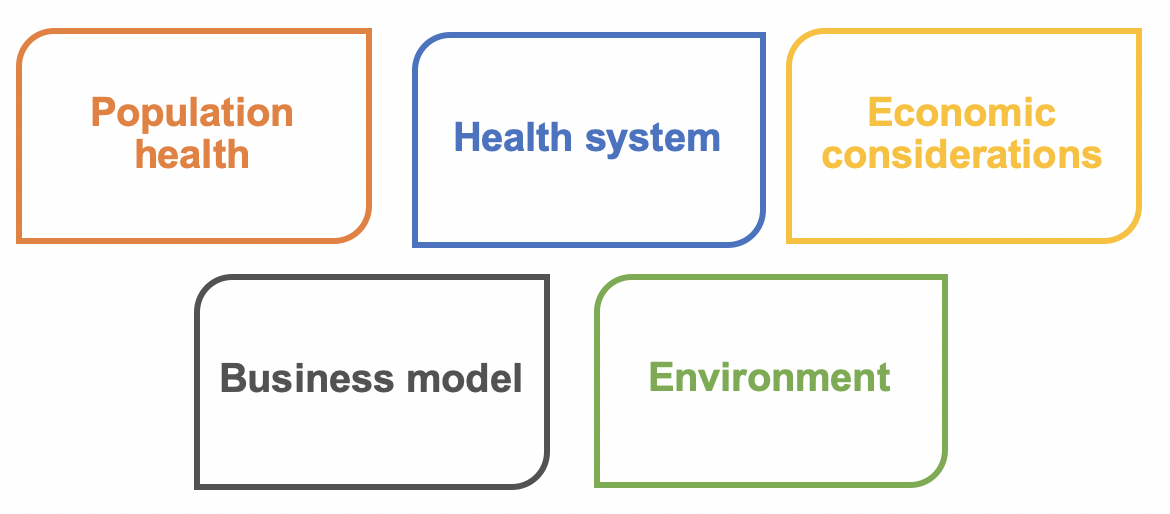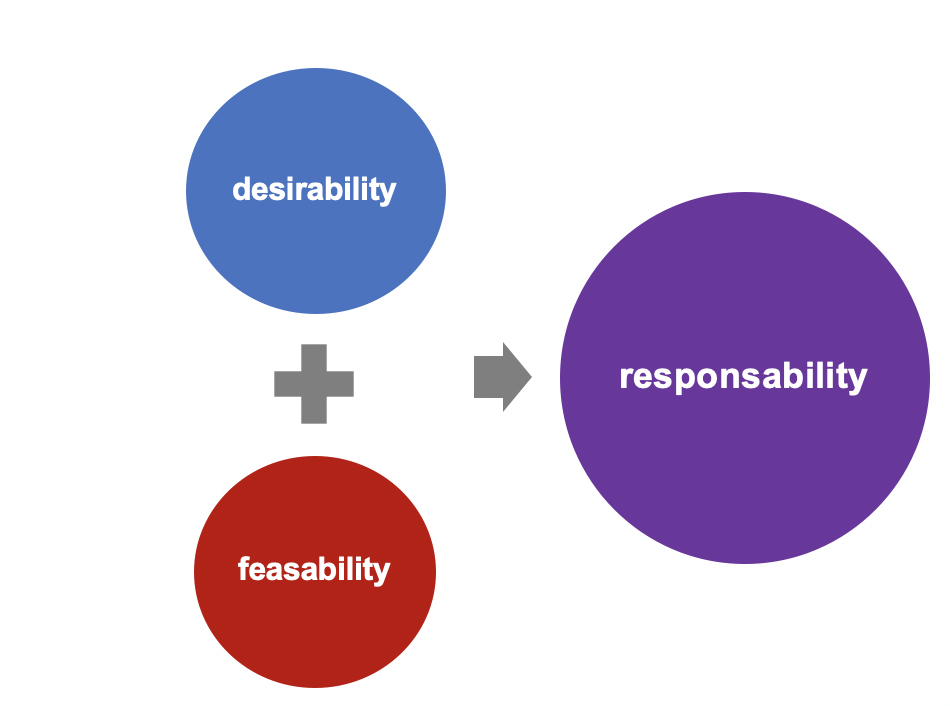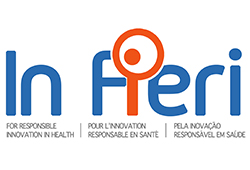Launched in 2018, the objective of this project was to better understand how innovation developers perceive Responsible Innovation in Health (RIH).
We interviewed 31 participants working in Quebec and Ontario and trained in clinical sciences, engineering, industrial design, and/or entrepreneurship. To stimulate reflections on the topic, participants visited a visual repertoire developed by our team that contains 9 examples of innovations that are potentially responsible and that fall within one of the following categories of healthcare:

Participants also shared their perspective on the RIH conceptual framework, mainly the 5 value domains:

A 1st article describes how health innovators perceive RIH and underscores how “desirability” and “feasibility” go hand in hand. In other words, the implementation of RIH is first and foremost a pragmatic issue and not only a question of principles or moral sensibility.
- Rivard L., Lehoux P. (2019). When desirability and feasibility go hand in hand: innovators’ perspectives on what is and is not responsible innovation in health, Journal of Responsible Innovation.

A 2nd article focuses on the systemic obstacles confronting innovators who seek to develop eco-responsible health innovations. Potential solutions are discussed in order to transform what is currently defined as a double burden into a single duty to care.
- Rivard, L., Lehoux, P., Miller, F.A. (2019). Double burden or single duty to care? Health innovators’ perspectives on environmental considerations in health innovation design, BMJ Innovation.

A 3rd article examines the quality and safety dilemmas raised by open source and Do-It-Yourself health innovations. Policy recommendations are made to help patients safely benefit from these innovations that often meet their needs.
A 4th article, guided by Tronto’s (1993) ethic of care framework and Responsible Research and Innovation (RRI), focuses on the ways in which health innovation designers reason around care and responsibility and translate these notions into their work. The exploratory findings provide a novel empirical basis for scholars to conceptualize health innovation designers as ‘care-makers’ and to integrate designers within the care relationship alongside caregivers and care-receivers.
- Rivard, L., Lehoux, P., Hagemeister, N. (2021). Articulating care and responsibility in design: A study on the reasoning processes guiding health innovators’ ‘care-making’ practices, Design Studies.
Project Lead: Lysanne Rivard


